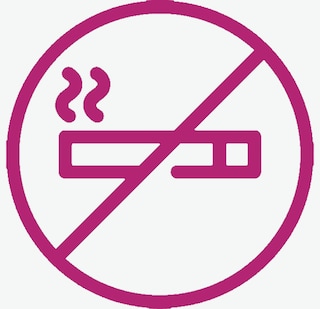
Our 2025 Roadmap goal
See our full 2025 roadmapPURPOSEFULLY PHASE OUT CIGARETTES
Intentionally work toward phasing out cigarettes by ensuring that we become a substantially smoke-free company by net revenues by 2030 and continue to reduce our combustible shipment volume.
Key performance indicators to track our progress
Our smoke-free business net revenues reached almost USD 14.7 billion in 2024, and represented 38.7 percent of our adjusted annual net revenues in 2024.* While our combustible cigarette business showed resilient performance in 2024, our commitment to drive their end is unwavering and our combustible tobacco product shipment volume decreased by 27.6 percent** versus 2015.
* and ** please refer to the PMI's Integrated Report 2024.

See full performance metrics
view dataLearn more about PMI’s Sustainability Index in our Integrated Report 2024. See the full performance metrics and related footnotes here.
THE RIGHT THING TO DO
Even though selling off our cigarette business would make our company achieve its smoke-free ambition faster, it would not resolve the cigarette problem.
Read moreTHE BUSINESS CASE
Despite being well on our way to delivering a smoke-free future, we still have some distance to travel, as our combustible tobacco product business continues to represent the greater part of our revenues.
Read more
Our progress in 2024
Read more in our Integrated ReportThis online content about our Integrated Report should be read in conjunction with PMI’s Integrated Report 2024. This report includes metrics that are subject to uncertainties due to inherent limitations in the nature and methods for data collection and measurement. The precision of different collection and measurement techniques may also vary. This report includes data or information obtained from external sources or third parties. Unless otherwise indicated, the data contained herein cover our operations worldwide for the full calendar year 2024 or reflect the status as of December 31, 2024. Where not specified, data comes from PMI financials, nonfinancials, or estimates.
Unless explicitly stated, the data, information, and aspirations in this report do not incorporate PMI’s wellness and healthcare business, Aspeya. Regarding the Swedish Match acquisition, completed late 2022, unless otherwise indicated, this report includes information pertaining to its sustainability performance. Please also refer to "This report at a glance" on page 2 of the PMI’s Integrated Report 2024 for more information. Aspirational targets and goals do not constitute financial projections, and achievement of future results is subject to risks, uncertainties and inaccurate assumptions, as outlined in our forward-looking and cautionary statements on page 206. In PMI’s Integrated Report 2024 and in related communications, the terms “materiality,” “material,” and similar terms are defined in the referenced sustainability standards and are not meant to correspond to the concept of materiality under the U.S. securities laws and/or disclosures required by the U.S. Securities and Exchange Commission.





